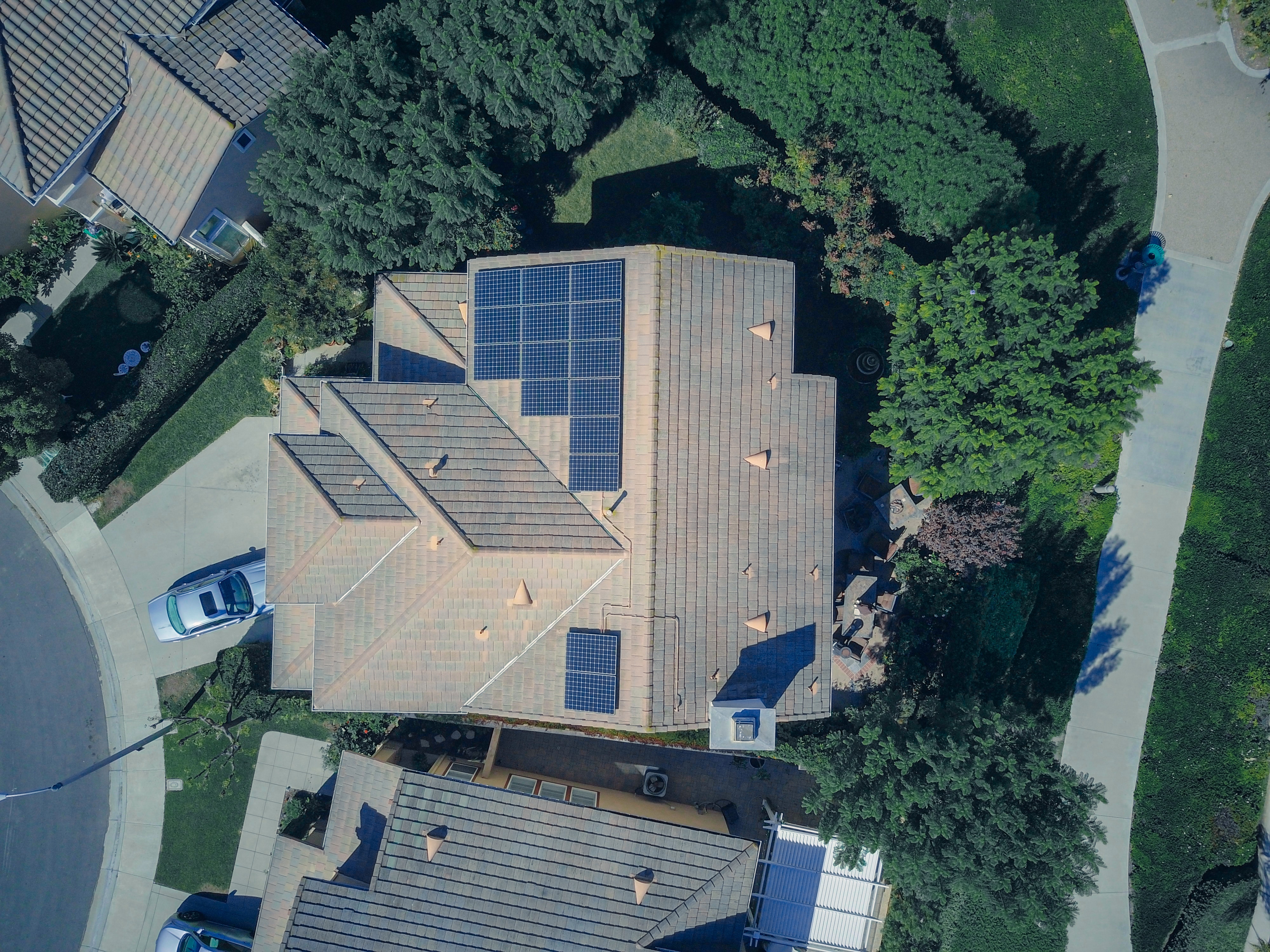Solar energy is on the rise, and homeowners are increasingly installing solar panels as a sustainable and cost-effective solution. But if you're planning to sell your home, you might wonder: do solar panels add value, or do they make a property harder to sell? Let's delve into the pros and cons to give you a clearer picture.
Sections
- The Growing Trend of Solar Energy
- The Financial Aspect
- Buyer Perceptions
- Logistical Challenges
- State and Federal Incentives
- The Future Looks Bright
The Growing Trend of Solar Energy
In recent years, solar energy has transitioned from a niche interest to a mainstream solution for energy needs. It's not just a passing trend; it's a critical step toward reducing our carbon footprint and combating climate change. According to the International Energy Agency (IEA), solar energy is on track to set new deployment records each year. With increased public awareness about the impact of fossil fuels, more and more homeowners are considering renewable energy options, and solar power stands out as one of the most accessible and effective.
Why Solar Energy is Gaining Popularity
Reduced Carbon Footprint: Solar panels produce energy without emitting greenhouse gases, thus playing a part in the fight against climate change.
Decreasing Costs: Advancements in technology have significantly reduced the cost of solar panel systems, making them accessible to the average homeowner.
Energy Independence: Solar panels allow homeowners to generate their own electricity, reducing dependence on utility companies and volatile energy prices.
The Financial Aspect
The Economic Upside
Solar energy isn't just eco-friendly; it's also economically savvy. For homeowners in regions with high electricity rates or abundant sunshine—sometimes both—solar panels offer a tangible return on investment.
Utility Bill Savings: Once the initial installation cost is offset, the savings on electricity bills can be substantial. Some households even achieve a “net-zero” energy bill.
Energy Buyback Programs: In certain areas, you can sell excess energy back to the grid, turning your home into a small revenue-generating unit.
The economic downside
While solar panels can offer substantial long-term savings, they're not always the best financial decision for everyone. Some factors to consider include:
1. High Initial Costs: The upfront installation and equipment costs can be significant, especially if you're not eligible for tax incentives or grants. This can be burdensome for homeowners who don't have the financial flexibility for a large initial investment.
2. Long Payback Period: Depending on your location and energy usage, it might take years to recoup your initial investment through electricity bill savings. For homeowners planning to move in the near future, this long payback period can be a financial drawback.
Buyer Perceptions
When it comes to selling a house with solar panels, potential buyers' perceptions can play a significant role in either facilitating or hindering the sale. Here we break down both the positive and negative viewpoints that buyers may have:
The Eco-Friendly Appeal:
1. Environmentally Conscious Buyers: As awareness about climate change and sustainable living grows, more buyers are actively seeking homes with eco-friendly features. Solar panels can be a significant selling point for this demographic.
2. Long-Term Savings: Educated buyers understand that while the initial investment may be high, the long-term savings on utility bills can be substantial. This perception can turn solar panels into a key selling point.
3. Up-to-Date Technology: Solar panels can give the impression that the home is modern and updated, which could be appealing to younger or more tech-savvy buyers.
Potential Barriers to Sale
1. Aesthetic Concerns: Not everyone finds solar panels aesthetically pleasing. Some buyers may dislike how the panels look on the roof, impacting the overall curb appeal of the home.
2. Perceived Maintenance: There's a common misconception that solar panels require a lot of maintenance. Though this is largely untrue, this perception can deter buyers who are not familiar with how solar panels work.
3. Complexity of Ownership Transfer: If the solar panels are leased or if there are ongoing payments, buyers may be apprehensive about the complexities involved in taking over the contract.
4. Information Gap: Many people are not well-versed in the benefits and functionalities of solar panels. This lack of knowledge can make potential buyers hesitant, prolonging the selling process as they take time to educate themselves.
By understanding the diverse perceptions that buyers might have about solar panels, sellers can be better prepared to address questions and concerns, thereby potentially shortening the time it takes to close a deal.
Logistical Challenges
The road to selling a home with solar panels is not always smooth, and the logistical challenges involved can make the process more complicated for both the buyer and the seller. Interestingly, while there are numerous benefits to having solar panels, when it comes to logistics, the challenges often outweigh the advantages.
Navigating the demanding landscape of Marin County's real estate market can indeed be challenging, but with these strategies at your disposal, you're well on your way to achieving a swift, successful sale.
Lack of Pros
It's worth noting that there aren't generally any logistical "pros" when it comes to selling a home with solar panels. The complexities introduced are challenges to overcome rather than advantages to leverage.
Challenges to Consider
Lease Transfer Difficulties: If you don't own your solar panels and are instead leasing them, transferring the lease to the new homeowner can be a complex process. Some solar companies have stringent criteria for lease transfers, which can make the handover challenging.
Creditworthiness: Leases often require the new homeowner to meet specific credit score criteria. If the interested buyer doesn't meet these requirements, this could be a deal-breaker unless you're willing to buy out the lease yourself.
Multiple Stakeholders: If the solar panels are not fully paid off, there could be other parties involved like banks or solar companies. Managing multiple stakeholders can complicate the sale process, making it longer and potentially more costly.
System Removal and Reinstallation: For those planning to take their solar panel system with them to a new property, the costs and challenges associated with removal and reinstallation can be significant.
Local Regulations and Permits: Depending on your jurisdiction, there might be local regulations that affect the sale of a home with a solar panel system. Ensuring you are in compliance can add another layer of complexity to the selling process.
Documentation and Warranty Transfer:The new homeowner may request all maintenance records, warranties, and other documentation related to the solar panel system. Gathering this information can be time-consuming but is often necessary for the sale to proceed smoothly.
Understanding these logistical challenges can help sellers anticipate issues and prepare solutions in advance, making the sales process more manageable for both parties involved.
State and Federal Incentives
Government incentives can play a pivotal role in a buyer's decision-making process when considering a home with solar panels. These incentives can vary widely, depending on both federal guidelines and individual state programs, making them a double-edged sword for sellers.
The Attractive Power of Incentives
Tax Credits: One of the most well-known incentives is the federal Investment Tax Credit (ITC), which allows homeowners to deduct a portion of the cost of installing a solar energy system from their federal taxes. This tax credit can be a strong selling point.
State-Specific Incentives: Beyond federal programs, many states offer additional tax benefits, rebates, or grants for solar installations. These can be highly enticing to savvy buyers who understand the long-term financial advantages.
Increased Home Value: Studies have shown that homes with solar panel systems are often valued higher than comparable homes without them, partly due to these incentives.
Long-term Profit: Some states even have feed-in tariff schemes or net metering, where homeowners can sell excess energy back to the grid, turning a home into a long-term investment.
The Downsides of Changing Legislation
Phase-Out Schedules: Incentives often come with an expiration date. For example, the federal ITC has been gradually phasing out and will continue to do so over the coming years. This could reduce the financial attractiveness of homes with solar panel systems.
Legislation Risks: State incentives are subject to change based on shifting political landscapes, budget constraints, and policy priorities. A buyer who was counting on a specific incentive might reconsider their purchase if that incentive is eliminated or reduced.
Complex Application Processes: Obtaining these incentives often requires navigating through a maze of paperwork, eligibility criteria, and deadlines, which could be viewed as a hassle by potential buyers.
Knowledge Gap: Not all buyers are aware of the available state and federal incentives or how to take advantage of them. Sellers may need to educate potential buyers, which can add another layer of complexity to the selling process.
By being aware of the current state and federal incentives, as well as the legislative landscape, sellers can more effectively navigate the complexities and questions that might arise during the sales process.
Final Thoughts
However, it's essential to consider the trajectory of renewable energy adoption. As solar power becomes more mainstream, public perception is shifting, gradually eroding many of the stigmas or uncertainties that may currently exist. Here are a few points to keep in mind:
Growing Awareness: The rise in public awareness about climate change and the benefits of renewable energy is likely to increase the appeal of homes with solar panel systems.
Technological Advancements: As technology improves, solar panels will become more efficient and less visually obtrusive, likely mitigating some of the aesthetic concerns potential buyers may have.
Policy Evolution: As policymakers prioritize renewable energy, we can expect a more stable and supportive legislative environment, which could make solar investments more secure in the long term.
In summary, while selling a home equipped with solar panels may come with its own set of challenges today, these are likely to diminish as the world moves toward more sustainable energy solutions. Keeping abreast of the latest technological and legislative developments can equip sellers with the knowledge and confidence to navigate the complexities of the real estate market.
Call to Action
Are you considering selling your solar-powered home and have more questions? Or are you a buyer wondering if a home with solar panels is right for you? Contact us today for personalized advice tailored to your real estate needs.


 Clint Massey-Blake
Clint Massey-Blake  Luisa Massey-Blake
Luisa Massey-Blake Preston Massey-Blake
Preston Massey-Blake